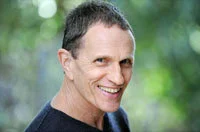 Sir Geoffrey Johnson Smith, DL
Sir Geoffrey Johnson Smith, DL was a
Conservative politician in the
United Kingdom. He was a
Member of Parliament (MP) from 1959 to 2001, with only a brief interruption in the 1960s died he was , 86.
The son of an electrical engineer, he was always proud of his birth city. He joined the Royal Artillery straight from
Charterhouse School in 1942 and after the war was demobilised as a captain.

(Glasgow, 16 April 1924 – 11 August 2010
[1])
At Lincoln College, Oxford, he read PPE. Contemporaries remember him as Oxford’s best-dressed socialist, though he always insisted he never joined the Labour Party. In his final year he and Robin Day took part in a debating tour of United States run by the
English-Speaking Union. From Oxford he joined the British Information Services, serving in San Francisco, where he met his wife, Jeanne, an American doctor whom he married in 1951.
He was later a presenter of the BBC political programme
Tonight in the late 1950s.
Shortly before the 1959 general election, Cliff Michelmore, Tonight’s presenter, had a hernia operation and Johnson-Smith was promoted to co-host the show for six weeks. His profile was thus at its highest when the election was called, and on 8 October 1959 he ousted the Labour member for
Holborn and St Pancras South Lena Jeger, by 656 votes.
He successfully promoted a Bill authorising councils to operate a meals-on-wheels service for the elderly and was soon on the fast track, within six months becoming PPS to ministers at the Board of Trade; in 1962 he moved to the Ministry of Pensions and National Insurance.
His parliamentary career was interrupted in October 1964 when Lena Jeger, as Labour came to power, had her revenge by 2,756 votes. He briefly returned to television, freelancing for the BBC and Rediffusion’s religious programmes.
However, he returned to the
House of Commons the following year at a
by-election in the safe Conservative seat of
East Grinstead. When that constituency was abolished for the
1983 election, he was returned for the new
Wealden constituency, and held that seat until he retired at the
2001 general election.
Sir Alec Douglas-Home quickly appointed him an Opposition whip, and when Heath became leader that summer he made Johnson-Smith a party vice-chairman.
When Heath came to power in 1970 he kept Johnson-Smith at Central Office. Soon afterwards Iain Macleod died suddenly, the party Chairman Anthony Barber taking his place and Johnson-Smith becoming acting chairman. He was never in the running for the top job, despite his popularity among Conservative ladies, and in April 1971 he instead became Under-Secretary for Defence for the Army.
Johnson-Smith, who was later to launch a successful campaign on behalf of haemophiliacs who had been given infected blood, fought a long battle to curb the Church of Scientology. The Church had its headquarters near East Grinstead and in 1970 he endured a six-week libel case before a jury vindicated his stance.
After the Bloody Sunday killings of January 1972, he mounted an uncompromising defence of the Parachute Regiment: “It is bad enough for our troops to have to run all the perils and be shot at by gunmen without having their pain increased by smears in this House.”
In November 1972 Heath moved him sideways to the Civil Service Department, with the remit of sharpening presentation of government policy. His time there was dominated by the
Kenneth Littlejohn affair, which was still rumbling on when Heath called a snap election in February 1974. Johnson Smith fought a skilful media campaign, but could not prevent Heath losing.
When Mrs Thatcher took the leadership, she asked him to oversee media activities at Central Office alongside a fellow television professional, Gordon Reece. After her 1979 election victory he joined the 1922 executive and chaired the party’s backbench media committee.
From 1980 to 1996 he chaired the select committee on Member's Interests, having to field embarrassing questions about the business activities of Mrs Thatcher’s son Mark.
Johnson-Smith specialised increasingly in defence. From 1985 he chaired the military committee of the North Atlantic Assembly, and from 1987 to 1997 he led the British delegation. For six years he chaired the Conservative backbench defence committee.
He was knighted in 1982 and sworn of the Privy Council in 1996.
To see more of who died in 2010
click here

 Roth's detailed obituaries were composed for international and national figures of note, using the skills and information he collected in his biographical research. A catalogue of his published obituaries in the archives of The Guardian provides an insightful and historical perspective to contemporary news as the deaths of the noteworthy are documented and he reviews their lives.
Roth's detailed obituaries were composed for international and national figures of note, using the skills and information he collected in his biographical research. A catalogue of his published obituaries in the archives of The Guardian provides an insightful and historical perspective to contemporary news as the deaths of the noteworthy are documented and he reviews their lives.












